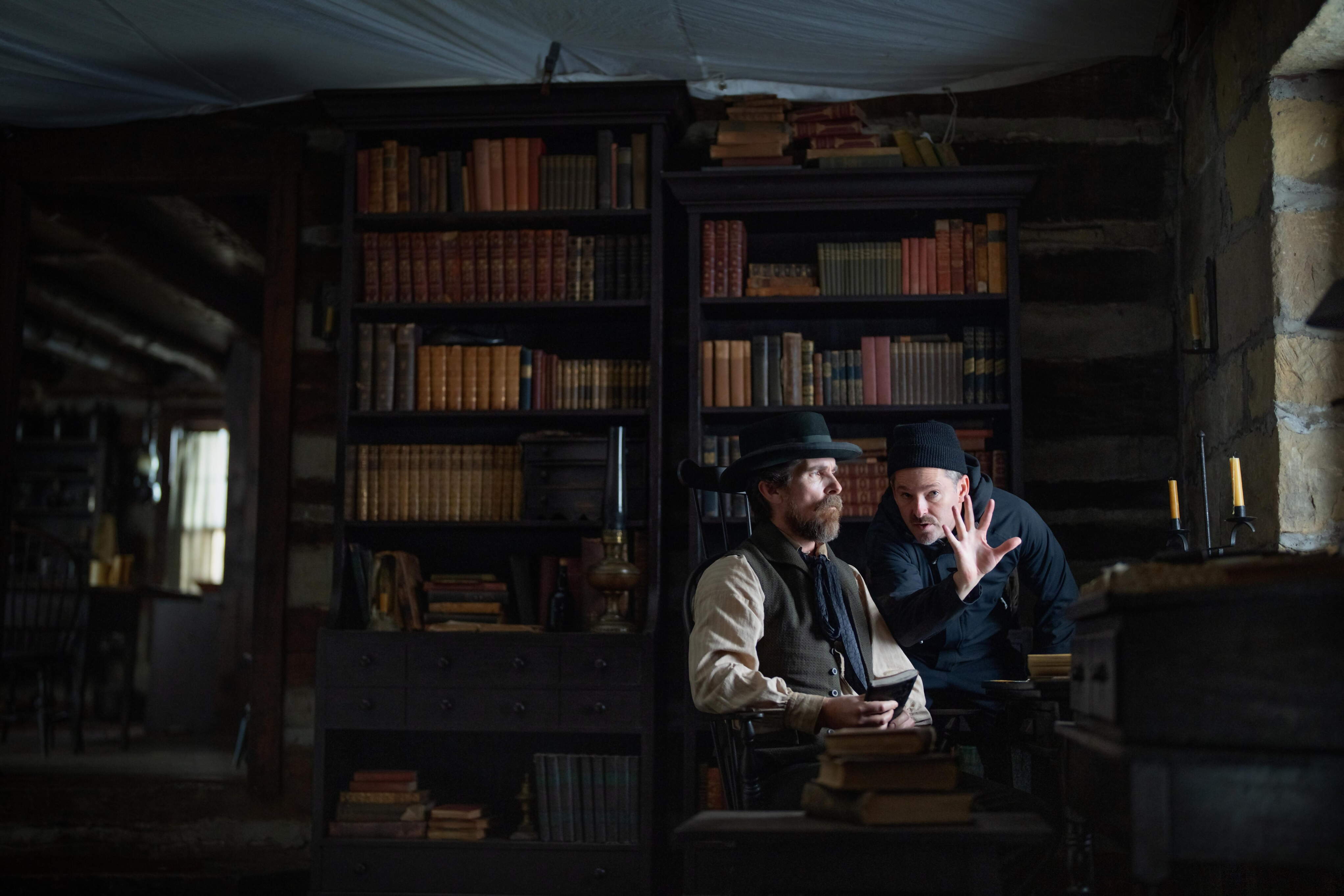
Scott Cooper reunites with Christian Bale for The Pale Blue Eye, a gothic mystery set in 1830’s Virginia. We chat to the director about his love of Edgar Allan Poe, his views on America and the state of streaming.
In The Pale Blue Eye, Bale plays Detective Augustus Landor who is tasked with solving the mysterious deaths of several cadets at the West Point Military Academy. He finds an unlikely ally and assistant in Edgar Allan Poe, who isn’t yet the master of macabre we know him as.
Cooper has been fascinated by America for a long time, as is evident from almost all of his films, which include Antlers, Hostiles and Out of the Furnace. We got on the phone with the director to chat all about The Pale Blue Eye as well as how he feels about Netflix.
Congratulations on the film, I saw it a couple of weeks ago, and I’m very excited to watch it again.
I think this is a film that not only rewards careful viewing, but should be seen maybe more than once to really see all the breadcrumbs that are laid for the audience.
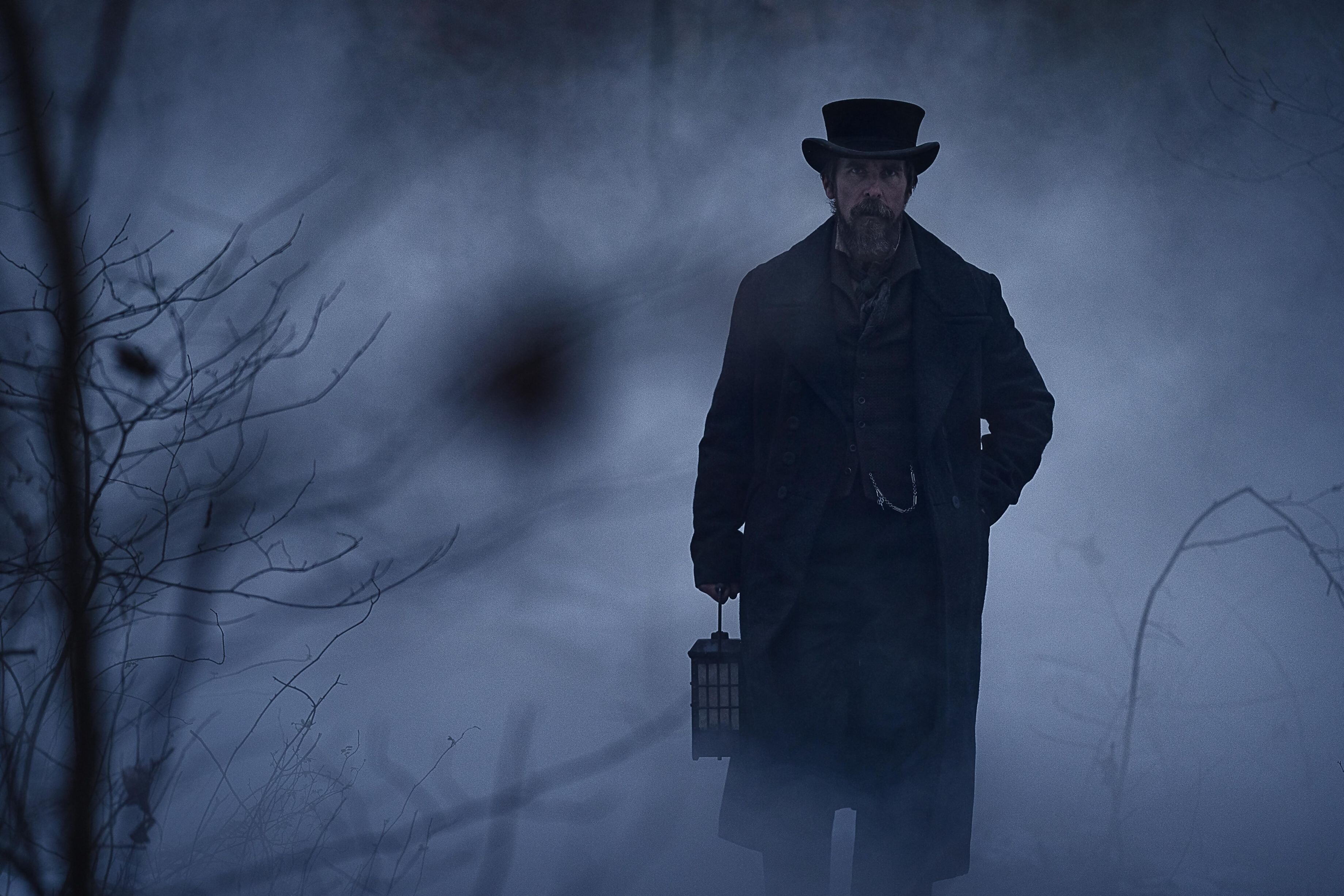
Credit: Netflix
Do you often write your films with that in mind, that they should be watched more than once?
Sure, because I like for my films to be very rich experiences, so often you can’t capture things on a first viewing. Christian (Bale) and I’ve talked about this, the three films that we’ve made, that hopefully each viewing offers you something different or something that you might have missed the first time which is why it’s sometimes troubling that people will see a film once and that’s all. But certainly with this one, given that it’s on Netflix, one can watch it more than one time and see a film in a different light on the second viewing. This one more than all of my films.
Netflix and streaming in general is something that keeps coming up with filmmakers. Do you have an opinion on streaming?
For someone who has made all of his films before this one for the big screen, in the way I compose my films, my shots, my photography mise-en-scene… I love nothing more than being in a darkened cinema, surrounded by strangers and being transported to Kubrick’s Barry Lyndon or John Ford’s The Searchers or Michael Cimino’s The Deer Hunter, those are movies that all inspired me.
But things have changed. Netflix and some of the streamers are making films that otherwise would never get made for an adult audience and quite frankly, more people will see this film on Netflix than have seen all of my films together. People have changed their viewing habits and now watch their films solely at home. You can’t fight that and you only have to say, as a storyteller, I will tell stories in different ways that will hopefully reach as wide an audience as possible.
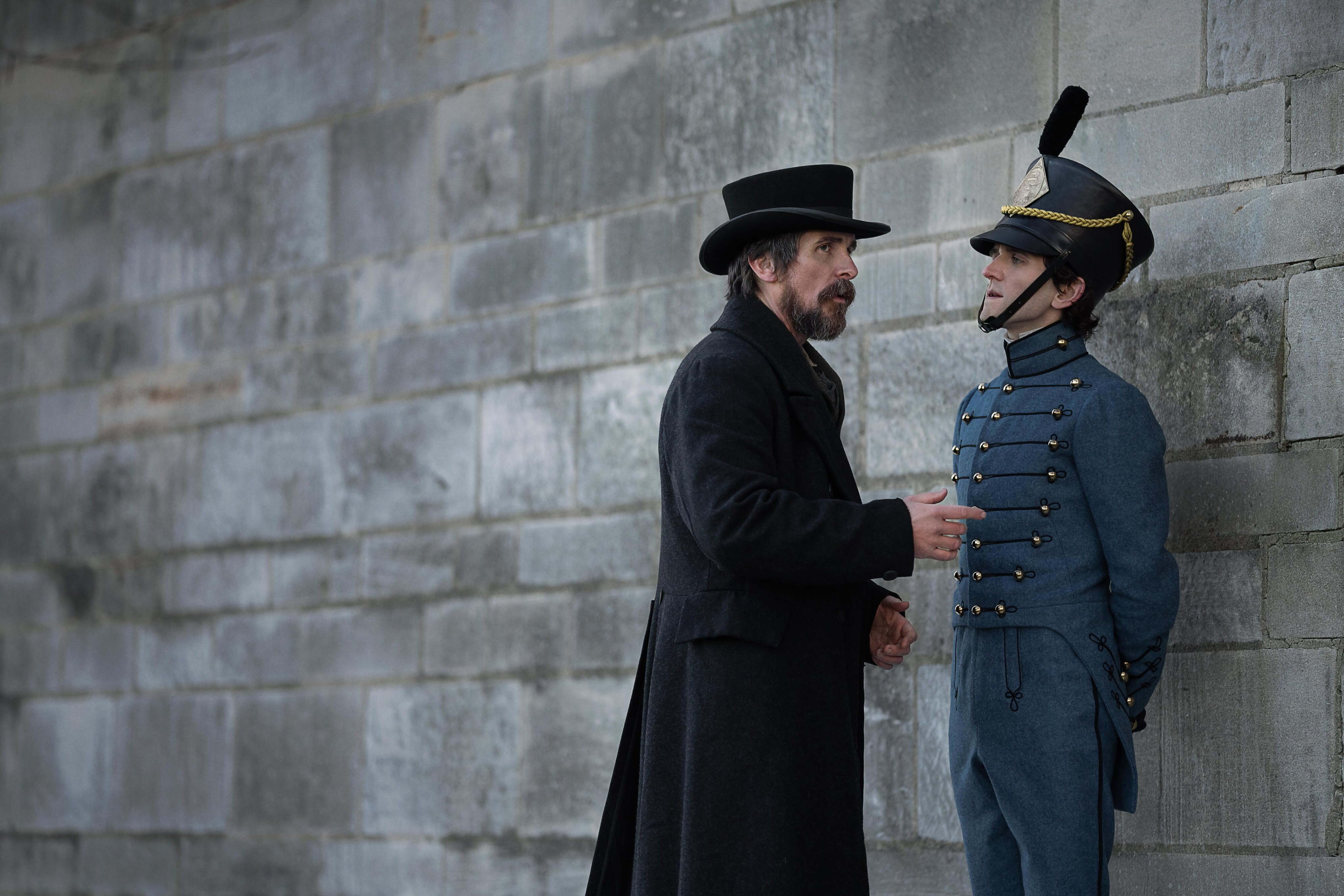
Credit: Netflix
What I will say is that my daughters do love the cinematic experience. It’s an event for them to go out and see a film with their friends. But they also watch a lot of films at home. I think it’s really about can we tell the stories that we want to tell whether it’s for streaming or for a big screen experience, but there is no substituting a big screen experience and I’m thankful that Netflix has given The Pale Blue Eye a two week run in cinemas for those people who might want to get out and see the film. Because quite frankly, most films today only are in cinemas for a few weeks unless they’re a superhero film.
I think it’s going to help watching it at home and being able to pause, maybe rewind some bits to see what I missed.
In this film, in particular, the language is more florid, it certainly speaks to an era that we don’t see in film often, the 1830s. That might take some time for people to get used to. And thankfully, we have some of the greatest British actors ever to grace the screen, reciting my dialogue.
Were you already a fan of Edgar Allan Poe and how did you find the original novel?
Much like Poe, I spent my formative years in the State of Virginia. My father, who taught English and literature at one time, was an inveterate reader and we had lots of literature in my house and lots of poetry. So I was aware and a fan of Poe’s work at a very young age.
After I made my first film, Crazy Heart, my father just happened to have read The Pale Blue Eye and he thought that it was quite clever that the author, Louis Bayard, placed a young Edgar Allan Poe at the centre of a detective story, because Poe is the man who bequeathed to us detective and horror fiction. I read it, just for pleasure reading, and I thought to myself, this can really make for an interesting film.
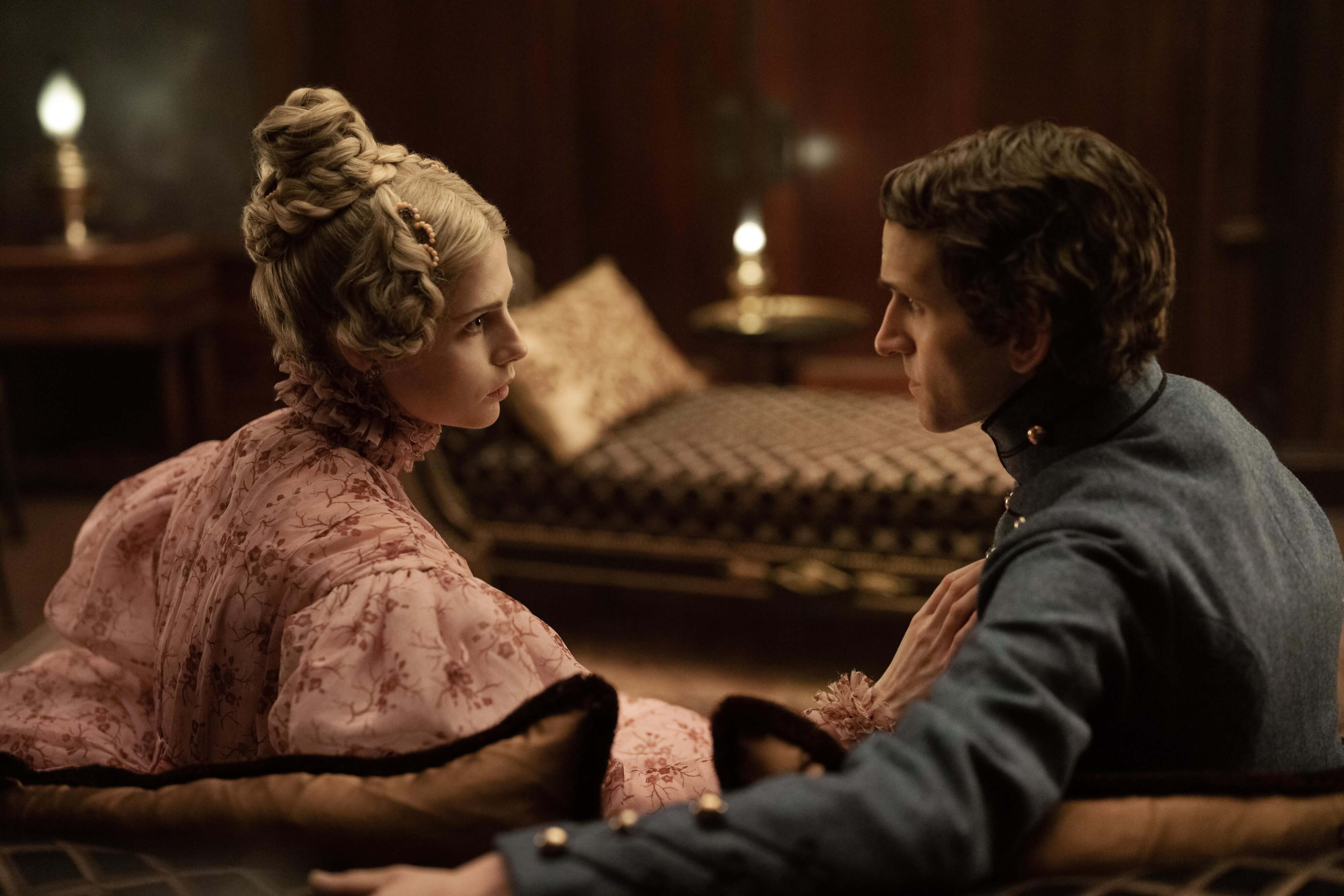
Credit: Netflix
Because most people know Poe as the master of the macabre, someone who explores the deepest and darkest recesses of our psychology, I thought, How can I take this novel and make it a whodunnit but also make it this a father and son love story where we have two people who live on the margins of society, who are often seen as outcasts, but who come together and forge this kinship. And also, as importantly, make it an Edgar Allan Poe origin story?
I’m positing the events that take place in this film, motivated Poe to become the writer he became and exploring the themes that he explored. So it really gave me an opportunity to do those things and work with some of my favourite Brit actors that I haven’t had a chance to work with because my movies are so American.
But it’s a completely fictional story, right?
It is fictional, although Edgar Allan Poe did spend time at the United States Military Academy at West Point. He was there for a year before he was summarily kicked out. Because he was a poet and romantic and didn’t quite take to the rigid confines of being a soldier and student. Someone who’s an artist, a poet, a romantic, isn’t bound by rules and regulations.
Doing a fictional story about a very real person that we don’t have a lot of recorded material of, apart from his works. Does that bring freedom that appeals to you as a storyteller?
It brings a great deal of freedom because there isn’t much about Poe that we know apart from his writing. There were no interviews, there’s only a few photographs. It gave me room to expand but it also gave me room to do a lot of research on Poe through his work, his thematics, the Poe Museum, through his personal diaries, to get a sense of his language, of what inspired him, what terrified him, what motivated him in terms of what he chose to write about. But it also was quite dangerous to tell a story about such a beloved figure, at least in America and put him at the centre of a detective story.

Credit: Netflix
You’ve worked with Christian Bale several times before, was he your first pick for the role?
I write a lot of scripts for Christian. I generally have actors in mind that I write for, certainly in this film, Harry Melling being one of them. But having written my first film Crazy Heart for Jeff Bridges, I’ve fallen into that trap of writing for actors that I admire and want to see my movies. And Christian has been that and ever since our first collaboration on Out of The Furnace, our friendship has really evolved and deepened into something that I treasure and cherish. I know Christian so well that I can write for him in ways that perhaps other writers and directors can’t.
We all get something different from Christian, he’s very different in David O. Russell’s movies and Christopher Nolan’s movies than he is in my films. He’s such a facile actor that he offers all three of us something very different, but I like to write from a very personal place. I’m just so thrilled that we have this collaboration and I’ve written a few more things that I hope that we get to make together.
It’s two very different performances from Harry and Christian, almost theatrical. How do you navigate those two different energies without one overpowering the other?
The two characters have very different energies, the way they enter a room, the way they carry themselves, the way they interact with others. Poe was known, from his diaries and people having written about him, to be warm and witty and humorous, a great companion, incredibly loquacious. Someone who gesticulated wildly, who would entertain almost like Buster Keaton.
Then you have someone and Augustus Landor, who’s a legendary Constable, a keen observer, and who only speaks when he has to. He never says more than he needs to. He’s someone who excels at the level of interrogation, who’s able to elicit things from suspects in ways that others can’t.
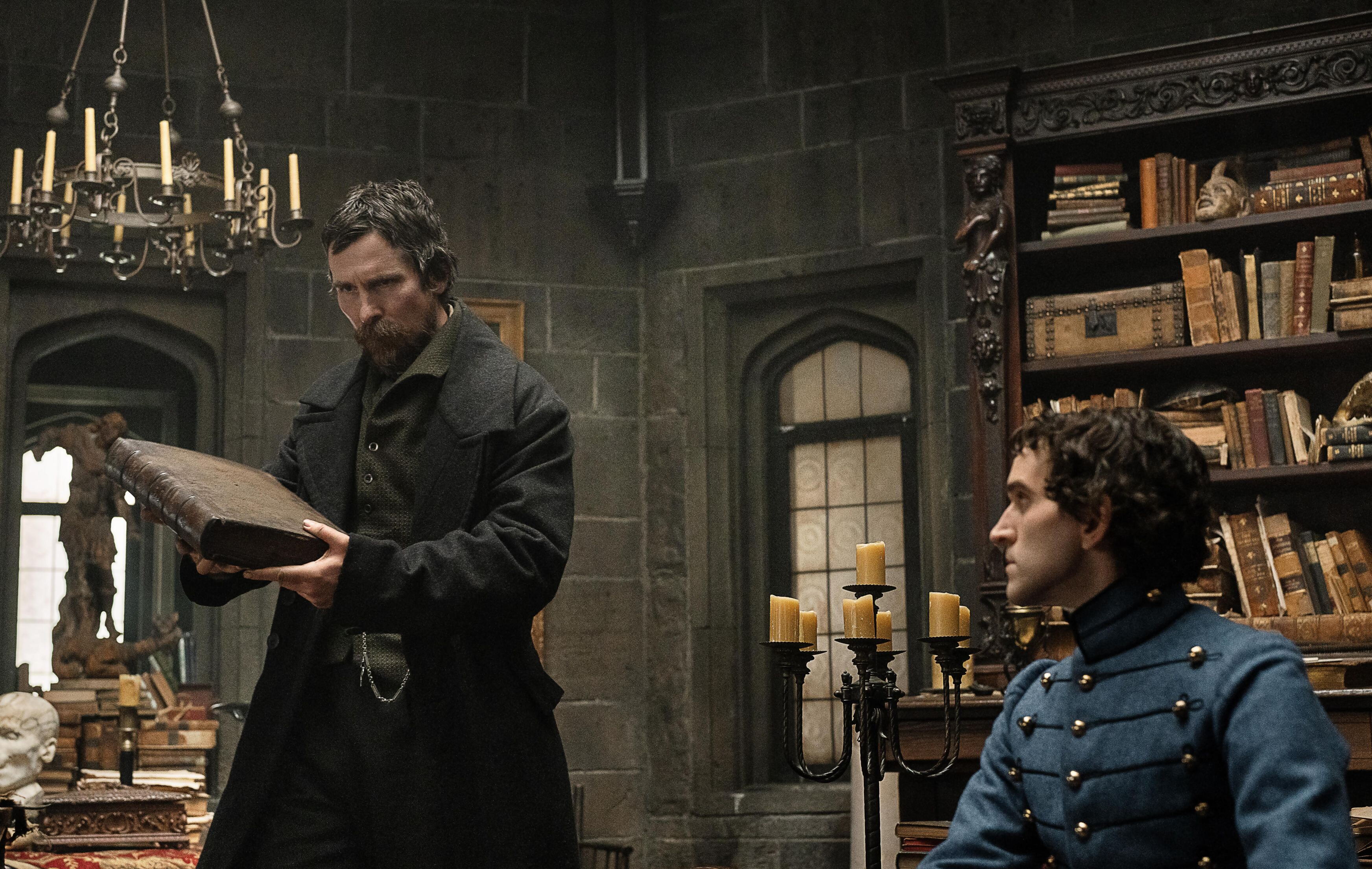
Credit: Netflix
So you have one man who’s very cagey and a very keen observer, you have another who’s prone to poetic flourishes, a romanticism and having those two in the same scene, in the same frame, I thought was breathtaking.
You said before that your films have been so overwhelmingly American. Why are you so interested in America, in your films, whether it’s something like Hostiles, Antlers or this?
America is an incredibly complex place, never more so than today. It’s a country that was born out of a fight for independence, but that independence has come at a great cost. You look at the original sin of slavery and you look at our incredibly awful treatment of the indigenous people in the United States. It’s a nation that’s soaked in tragedy and blood and for an artist who isn’t afraid to confront that, as I am not afraid to confront that, it’s what makes for compelling drama and tragedy.
It also allows me to understand the place from which I came. And what is it about the forces, cultural, socio-economic, that really made me become the person that I become, my family, who they became and how do these forces in America affect us all on a daily basis? So I try to mine that social commentary in a way hopefully, subtly.
Referring to Antlers, it’s a film about family trauma, which we all suffer from. It’s also a film about addiction. And America has endured a horrendous addiction to opioids, methamphetamine, and alcoholism. Men are dying deaths of despair, our young men are really struggling in America. So all these sorts of things hover under the surface.
If you look at Out of The Furnace, you have a soldier in Casey Affleck, who’s come back from Iraq and Afghanistan, completely troubled and suffering from post-traumatic stress disorder. How does he assimilate back into American life? These are all the sorts of things that I like to explore. Sometimes I do it through genre, sometimes I do it through straight drama.
The Pale Blue Eye is in cinemas 23 December before arriving on Netflix 6 January, 2023.



